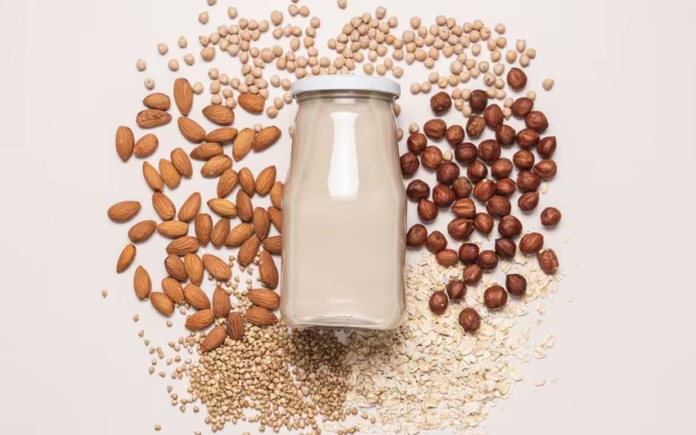Plant-based milks like oat, almond, and soy milk have gained significant popularity as eco-friendly and dairy-free alternatives to cow’s milk. However, a new study from the University of Copenhagen suggests that these drinks might not be as healthy as commonly believed. While they offer a sustainable option for many, they may fall short in delivering the essential proteins and amino acids that are naturally found in cow’s milk.
The study, led by Professor Marianne Nissen Lund, highlights the impact of the extensive processing that plant-based beverages undergo. To extend shelf life, these drinks are often subjected to ultra-high temperature (UHT) treatments. This process, which involves intense heat, initiates a chemical reaction between protein and sugar known as the Maillard reaction. While this reaction helps with preservation, it also reduces the quality of proteins and depletes essential amino acids, thereby making plant-based milks less nutritionally rich than cow’s milk.
Lund pointed out that plant-based drinks, despite their growth in the market, cannot fully replace cow’s milk in terms of proper nutrition. In addition to the diminished protein quality, the study also raised concerns about the formation of harmful compounds during processing, such as acrylamide. Acrylamide, a potential carcinogen, was found in plant-based drinks made from oats and almonds. Though the levels of acrylamide were found to be low and unlikely to pose an immediate risk, Lund cautioned that regular exposure to small amounts of this compound could lead to health risks over time.
While plant-based milks are a valuable alternative for those with lactose intolerance or dietary preferences, the findings suggest they may not match the nutritional benefits of cow’s milk. Therefore, while they remain a popular and sustainable choice, it’s important for consumers to be aware of the potential nutritional shortcomings and hidden risks associated with their processing.
4o mini





